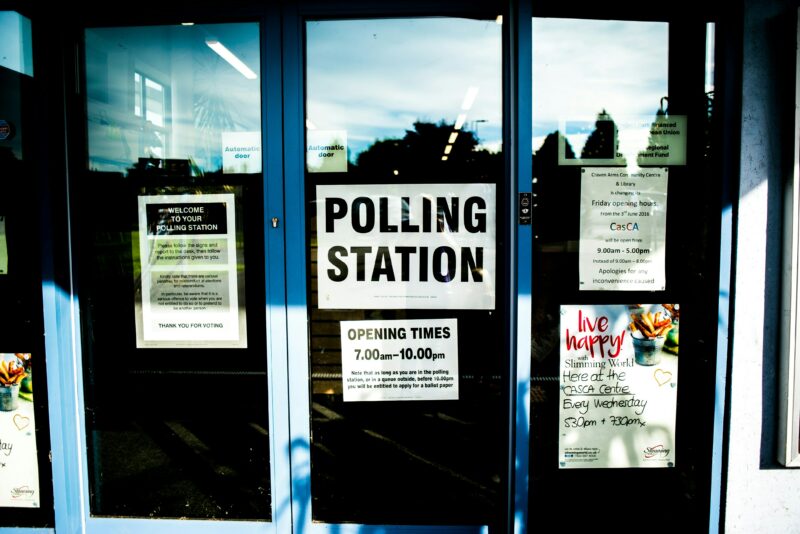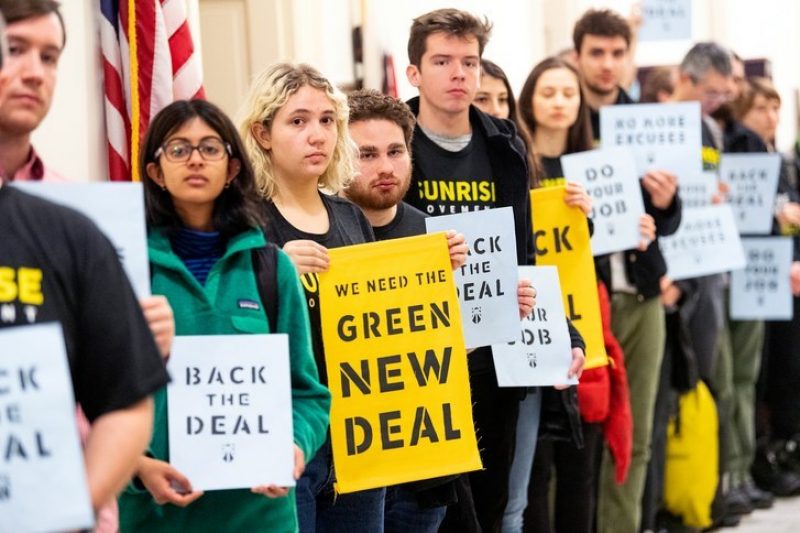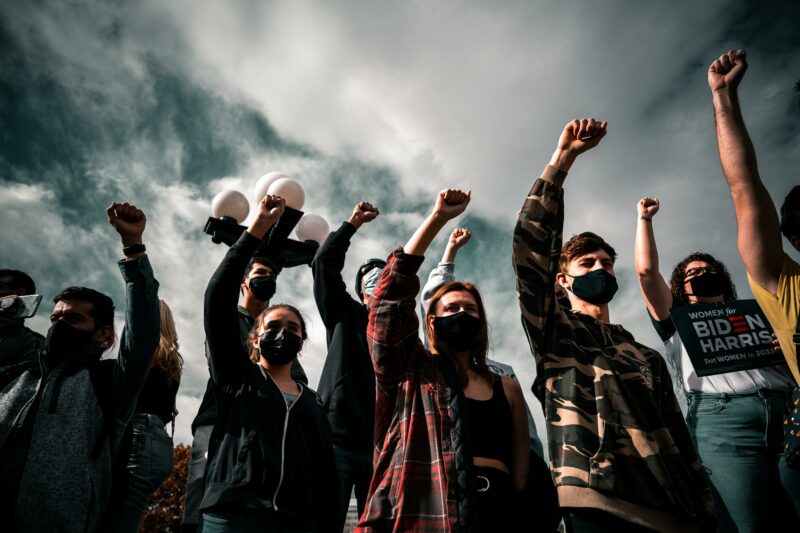Disinformation in the year of elections
Globally, more people than ever in history will head to the polls this year - so how can we combat fake news and disinformation?

As we know 2024 is the year of elections. It’s perhaps the election year.
Globally, more people than ever in history will head to the polls this year, with 4 billion eligible to vote - that’s about 49% of the people in the world. The result of these elections will prove consequential for years to come, especially for the climate agenda.
As the urgency of climate action starts to bite, in many countries environmental action is becoming increasingly politicised. Getting a mandate for policies to tackle climate change and alleviate poverty is more critical than ever. Politicians who recognise the inevitability of a transition to a carbon neutral society are facing backlash from populists who are seeking to make climate a wedge issue.
Economic change will of course create winners and losers. But all too often, politicians are failing to clearly negotiate and balance these trade-offs, and populists are seeking to appeal to those who are not immediate winners in the new green deal. The result is the rapid rise of climate misinformation, as those with economic interests support the populists seeking to maintain the status quo seek to shape and distort public discourse.
John Kerry, US climate envoy has spoken out on this issue: “People are not being told the truth about what the impacts are from making this transition [to net zero greenhouse gas emissions],” he said. “They’re being scared, purposely frightened by the demagoguery that is oblivious to the facts or distorting the facts. And in some cases outright lying is going on.”
The populist attack against climate friendly policies around the world is blocking progressive action, posing a serious threat to the public support needed to solve the climate crisis.
The dark past of climate denial
There is a long murky and dark history to climate misinformation, starting with fossil fuel companies denying any link with their industry and global warming. In the face of overwhelming scientific evidence, the approach of blank “climate denialism” has given way to “climate delayism” that seeks to undermine proposed solutions by presenting solutions as unfair, too expensive or too complicated – exacerbating division and mistrust.
“ As ever-more sophisticated AI is developed, the potential for disinformation to interfere in the democratic process has never been higher.”
The incentive structures of social media have empowered keyboard contrarians to amplify and “social prove” these positions. As Charlotta Friborg, Programme Director at SVT News, has said, “We have the main audience who are, of course, concerned and feel strongly about the topic (climate change). But there is a minority, which has a really strong voice, an aggressive voice. These are people from the extreme right, who think that the climate issue is a hoax, something that the elites are trying to impose on them.”
And as ever-more sophisticated AI is developed, now capable of generating images, audio and video indistinguishable at first glance from the real thing, the potential for disinformation to interfere in the democratic process has never been higher. Social media sites have long resisted editorial or oversight responsibilities, and content moderation remains under-resourced and overstretched.
Coalitions and organisations like CCDH are doing the critical work of pushing platforms to take greater accountability for content moderation, and some research into how best to help prime users to recognise fake news is underway, but these projects are in their infancy and struggle to engage groups that are the most susceptible to misinformation. Organisations like Valant projects are anticipating and sharing awareness about what to expect so organisations can prepare their interventions and responses. Organisations should undertake scenario planning to identify major risks and possible options for their response.
So how can we address the tactics of this vocal minority to bolster and maintain mainstream support for urgent climate action?
Widen the audience, recognise the opponents
Firstly, it’s important to recognise that climate is not only a progressive issue. Conservative values of conservation, security, avoiding wastefulness can all be harnessed to support climate change, even Margaret Thatcher was at one time a supporter of climate action. Climate Outreach provide some do’s and don’t about frames to use when talking to this audience.

We must also not lose sight of the fact that climate action has widespread appeal, a globally representative survey in 125 countries found that a large majority of individuals—69%—state they would be willing to contribute 1% of their household income every month to fight global warming; in an International Public Opinion on Climate Change Survey 2023 a majority of respondents in most surveyed areas (103 out of 110) say climate change should be either a “very high” or “high” priority for their own governments, and 89% of respondents state that their national government should being doing more.
Supporting ambitious action on climate change is neither niche nor elite. But all too often, environmental concerns are portrayed as exactly that. To accept this framing is not only to seed ground to climate action opponents, it is to do their work for them. The more we present climate action as the norm, the more the fear of freeloading starts to dissipate.
“ If communities only ever see middle-class white men talking about climate change, then it’s easy to dismiss climate concerns as affecting only that group.”
Linked to this, it has been shown that shaming and blaming individuals can create negative backlash impacts, as well as deflecting from the fact that industries and corporations are ultimately the ones most responsible for climate change. It is one thing to encourage personal responsibility, but it is another to present that as a solution, instead we need win-win messages that inspire positive visions for people and the planet.
Indeed, to communicate successfully we must recognise and demonstrate that climate opposers are a small and vocal minority with close links to businesses, institutions and groups that benefit socially and economically from maintaining the status quo. Exposing these linkages – as organisations such as Greenpeace, the Social Markets Foundation and Global Witness are doing – will damage the social license of these companies and undermine the credibility of their words.
Broaden both the message and the messengers
In climate communications, using the right frames is essential to present our arguments in a more compelling way. Presenting policies that reduce emissions as an issue of the health of children rather than the rights of drivers? In a global report Later is too Late the data shows that across multiple countries one message moves the whole world significantly: protecting the planet for the next generation. "While policy and political leaders often focus on messages like green jobs, economic prosperity, ending injustice and even fighting the costs of extreme weather, the data gives a clear signal that there is a better message to grow the overall size of support. Across every country, love for the next generation was the dominant reason for action on climate change."
As well as our messages we should also reflect on who are our messengers. While it is important that we have confidence in our position, we should also think creatively to explore if there are better messengers for our message and audience.
If communities only ever see middle-class white men talking about climate change, then it’s easy to dismiss climate concerns as affecting only that group. The student climate movement – with its commitment to diversity and inclusion – has made great strides in combatting this by training an entire new generation of young, diverse and representative advocates for climate justice.

Messages matter, as do the messengers, and if we fail to understand the bonds that connect people and how they realise their values, we have little chance in creating a better future for us all. Investing in deep engagement through participatory mechanisms and inclusive policy development for community owned solutions. As well as communicating the benefits of change we need to support communities to resolve the trade offs that taking climate action creates.
Finally, we need to share lessons from these campaigns and approaches with allies so we can build our knowledge and accelerate our understanding of what works, developing a playbook or manual of how to navigate these challenges and attacks in real time. Success in one place is success for us all. Let’s not forget that we are the majority, and this is humanity’s greatest collective challenge.
- Jean McLean, GEC


